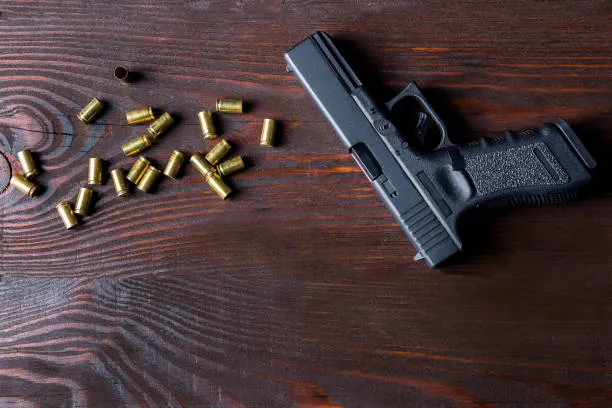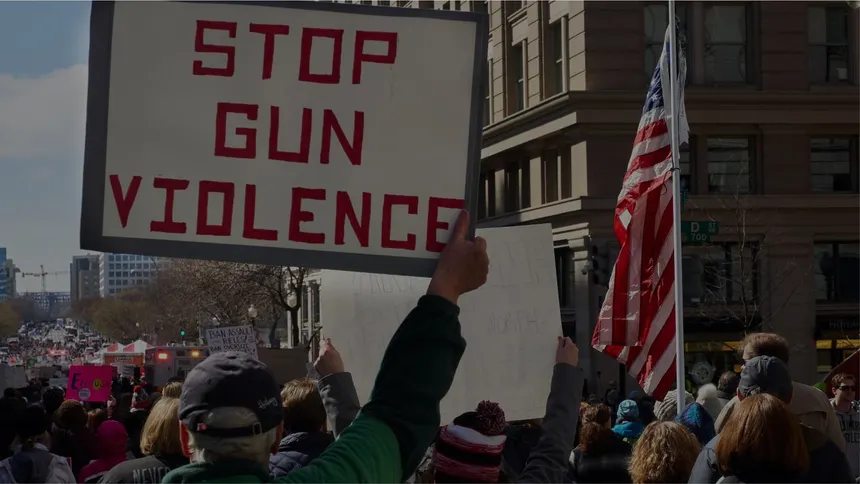The debate over gun control has reignited across the United States after a string of devastating mass shootings. With rising gun violence leaving communities shaken, lawmakers, activists, and citizens are divided over how to tackle the issue. Some demand stricter gun laws to curb the violence, while others argue that access to firearms is a fundamental right. The growing crisis has put immense pressure on political leaders to take decisive action.
Recent Mass Shootings Spark Outrage
Several mass shootings in recent weeks have intensified the debate, drawing attention to gaps in gun regulations.
- School Shooting in Texas: A high school in Texas witnessed a tragic attack, leaving multiple students and teachers dead. Authorities revealed that the shooter, a former student, legally purchased the weapon despite prior warning signs.
- Shopping Mall Attack in California: A gunman opened fire in a busy shopping mall, killing innocent shoppers before being taken down by police. Investigations show that the suspect had a history of mental health issues but still had access to firearms.
- Nightclub Shooting in Florida: A popular nightclub turned into a site of horror as an armed individual targeted patrons, resulting in several fatalities and injuries.
These incidents have sparked widespread protests and demands for legislative changes.

The Gun Control Debate: Two Sides Clash
The issue of gun control remains one of the most divisive topics in America. Here’s what both sides are saying:
Pro-Gun Control Advocates: Stricter Laws Needed
Supporters of tighter gun laws argue that reducing access to firearms can save lives. Their main points include:
- Universal Background Checks: Many believe that every gun purchase should require thorough background checks to prevent criminals and mentally unstable individuals from acquiring weapons.
- Ban on Assault Weapons: Activists call for the prohibition of military-style rifles that have been used in many mass shootings.
- Stricter Red Flag Laws: These laws allow authorities to confiscate firearms from individuals deemed a danger to themselves or others.
- Closing Loopholes: They argue that gun show loopholes and private sales make it easy for people to buy guns without proper vetting.

Pro-Gun Rights Advocates: Second Amendment Must Be Protected
On the other hand, gun rights supporters claim that restricting firearm access violates their constitutional rights. Their key arguments include:
- Self-Defense: Many Americans own guns to protect themselves and their families, believing that limiting access to firearms makes people more vulnerable to crime.
- Second Amendment Rights: The U.S. Constitution guarantees the right to bear arms, and some fear that increased regulation is a step toward total disarmament.
- Guns Are Not the Problem, People Are: Some argue that addressing mental health issues and crime rates should be the priority instead of restricting lawful gun ownership.
- More Armed Citizens for Safety: Some believe that arming more law-abiding citizens can help stop mass shootings before they escalate.
Political Reactions and Legislative Proposals
In response to the increasing gun violence, lawmakers have proposed several measures:
- President’s Call for Reform: The President has urged Congress to pass tougher gun laws, including universal background checks and a ban on assault weapons.
- State-Level Responses: Some states have introduced stricter gun laws, while others have relaxed regulations, arguing that gun ownership is a personal right.
- Bipartisan Talks: While both Democrats and Republicans acknowledge the issue, there is little agreement on how to move forward, causing legislative gridlock.
Public Outrage and Protests
In cities across the country, mass protests have erupted, with thousands demanding change.
- Gun Control Rallies: Activist groups, including Moms Demand Action and March for Our Lives, have held demonstrations calling for stricter laws.
- Counter-Protests by Gun Rights Groups: Organizations like the NRA (National Rifle Association) have organized counter-rallies, defending the Second Amendment.
- Social Media Campaigns: Hashtags like #GunControlNow and #ProtectTheSecondAmendment have trended online, reflecting the deep divide among Americans.

The Role of Mental Health in Gun Violence
A significant part of the debate focuses on the role of mental health in mass shootings. Key concerns include:
- Mental Health Screenings: Some propose mandatory psychological evaluations before purchasing firearms.
- More Funding for Mental Health Services: Experts stress the need for better mental health care to prevent potential violence.
- Misplaced Blame?: Some argue that blaming mental health alone oversimplifies the issue, as many mass shooters did not have diagnosed conditions.
International Comparisons: What Other Countries Are Doing
The U.S. gun violence crisis is often compared to policies in other nations:
- Australia’s Gun Buyback Program: After a mass shooting in 1996, Australia implemented strict gun laws and a nationwide buyback program, significantly reducing gun violence.
- Japan’s Stringent Laws: Japan has some of the lowest gun violence rates due to its extremely strict firearm regulations.
- Europe’s Approach: Many European countries have strict background checks and licensing requirements, leading to fewer gun-related crimes.
What’s Next? The Future of Gun Control in America
With tensions running high, the future of gun control remains uncertain. Key possibilities include:
- New Federal Gun Laws: If lawmakers reach a consensus, the U.S. could see stricter national gun regulations.
- State-Level Action: Individual states may continue to pass their own gun laws, leading to a patchwork of different policies across the country.
- Continued Legal Battles: The fight over gun rights is likely to be settled in courts, with potential Supreme Court cases shaping the nation’s gun laws for years to come.
Conclusion
The recent wave of mass shootings has once again forced America to confront its gun control problem. With strong opinions on both sides, finding a solution remains challenging. Whether through stricter regulations, improved mental health services, or other measures, one thing is clear—action is needed to prevent further tragedies. The coming months will be crucial in determining the direction of gun control in the U.S.
Do Follow USA Glory For More Updates.






